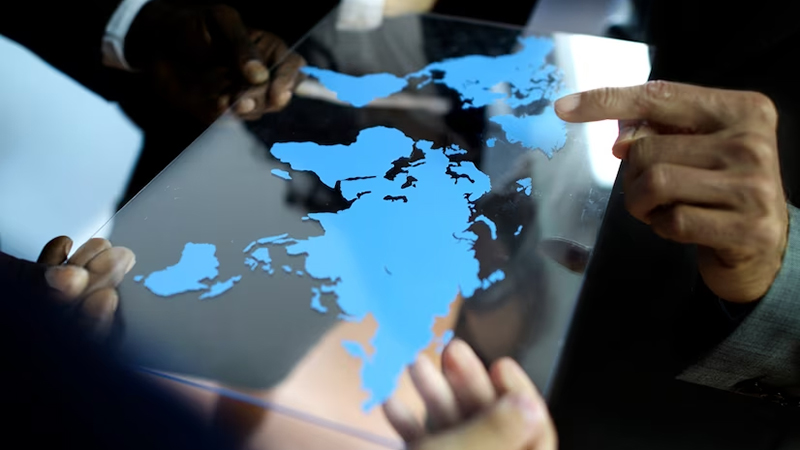Unmindful of the recent turmoil in the Middle East, India on Thursday backed the proposed India-Middle East-Europe Economic Corridor.
Presenting the interim budget ahead of the upcoming general election, Finance Minister Nirmala Sitharaman dubbed the corridor as a “game changer” for all the member countries.
The economic corridor once up and running holds the promise of becoming a force multiplier for the entire region. Coincidentally, the Middle East oil producing nations flush with oil surpluses estimated at around $4 trillion, and India, are the fastest growing regions in the world.
Quoting Prime Minister Narendra Modi, FM Sitharaman said, “The economic corridor) will become the basis of world trade for hundreds of years to come, and history will remember that this corridor was initiated on Indian soil”.
Significantly, the FM’s remarks come just a fortnight ahead of another bilateral visit by PM Modi to the United Arab Emirates.
The corridor was announced on the sidelines of the G20 summit meeting in New Delhi last September. Representatives of the United States, the UAE, Saudi Arabia, Jordan, Israel, Italy, France, and the European Union—all member countries of the economic corridor—were present at the inking of the deal. While Saudi Arabia was a state guest of India, the UAE was a special invitee to the G20 summit.
The economic corridor is a futuristic plan that overflows with ambition. Already, the Middle East and India are working to address mutual interests—food security for the former and energy security for the latter.
It builds on newly forged relationships. The India-UAE Comprehensive Economic Partnership Agreement, will log its second anniversary later this month. Similarly, a food corridor connecting the Middle East and India has been underway for the last three years.
It also builds on the new strategy to de-risk global supply chains. The economic corridor, built on the foundation of friendshoring, broadly envisages:
• Linking commercial hubs across continents;
• To facilitate the development and export of clean energy; lay undersea cables and link energy grids and telecommunication lines to expand reliable access to electricity;
• Enable innovation of advanced clean energy technology; and connect communities to secure and stable Internet;
• Drive existing trade and manufacturing and strengthening food security and supply chains;
• Unlock new investments from partners, including the private sector, and spur the creation of quality jobs.
The economic corridor is a forerunner of similar agreements in the future. The idea is to create reliable supply chains by making everyone a stakeholder. Effectively, the era of reliance on one country has ended. A lot however depends on the ability of the member countries to overcome the geopolitical setbacks in the Middle East and stay the course. – Anil Padmanabhan is a senior journalist based in New Delhi


Leave a Reply